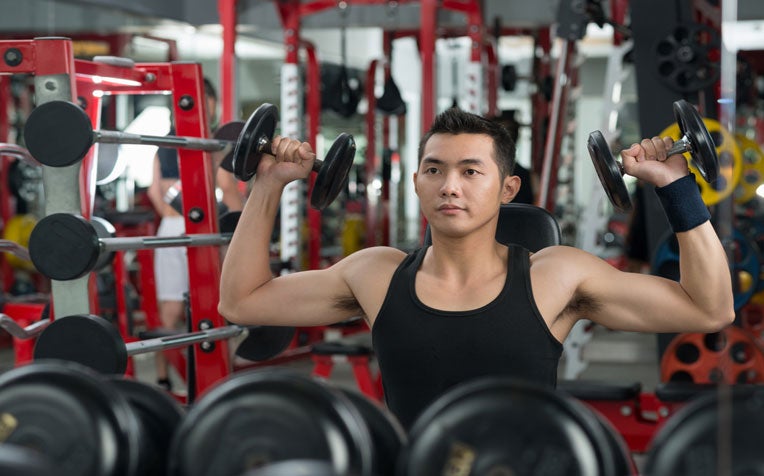1. Inguinal hernia shows a bulge when intestine protrudes through abdominal wall; sports hernia doesn't have visible bulge.
2. Sports hernia involves groin muscle/tendon injury from sudden twisting movements, causing pain that worsens with activity.
3. Prevent weight-lifting hernias by warming up, lifting appropriate weights, and using proper form with knee bends.

Hernia esoecially, sports hernia, can occur when engaging in strenous physical activity such as lifting weights.
Inguinal Hernia vs Sports Hernia
Strenuous sports and physical activity, particularly weight-lifting, can cause inguinal hernia, a type of hernia that develops in the groin and is common in men.
Strenuous sports can also cause a condition known as sports hernia, which has similar symptoms and even a similar name, but is not actually hernia. Unlike inguinal hernia, there is no lump or bulge in sports hernia.
“In inguinal hernia, part of your intestine protrudes through a weak section in the abdominal wall, causing a bulge or lump. In the case of sports hernia, the intestine is not involved at all,” explains Prof Wong Wai Keong, Head and Senior Consultant for the Department of General Surgery at Singapore General Hospital (SGH), a member of the SingHealth group.
What causes sports hernia
Sports hernia (also known as athletic pubalgia) develops because of an injury to muscle, tendons or ligaments in the groin, caused by playing strenuous sports, e.g. ice hockey, soccer, wrestling. Rapid twisting and turning movements of the body and a sudden change of direction can cause strain, or a tear, in muscle and soft tissue. The main symptom of sports hernia is groin pain.
You are likely to experience severe pain in the groin area at the time of the injury. The pain typically improves with rest, but returns when you resume playing, and bend or rotate your body. The groin pain may extend to the genital area. The groin area may also feel tender to the touch.
Diagnosing and treating sports hernia
Sports hernia is diagnosed with a physical exam and by observing the athlete performing exercises such as sit-ups, to determine whether they cause groin pain. Imaging tests such as an x-ray and MRI may also be carried out.
Treatment involves resting the injured groin muscles, tendons or ligaments for several weeks. Anti-inflammatory medication and icing the injured area can also help with pain management. After a couple of weeks, you may be advised physical therapy to strengthen your abdominal muscles. Typically, you can return to normal sports activities after 4-6 weeks of physical therapy.
If these methods are ineffective in treating the sports hernia, surgery may be required. Surgery to repair the torn muscle or tissue can be a traditional open surgery, or a procedure using an endoscope and requiring small incisions.
If left untreated, sports hernia may result in chronic pain that may prevent you from resuming your sports activities. It may also develop into true hernia.
How to prevent inguinal hernia while lifting weights
Weight-lifting, if done incorrectly, can also cause inguinal hernia. Therefore, it is important to be careful and follow proper procedure if you must lift weights. Following are some precautions you can take to prevent inguinal hernia:
- Warm-up before you start lifting weights.
- Lift an appropriate amount of weight.
- Always bend from your knees, not your waist.
- Avoid rushing and lift the weight slowly.
- Stop if you feel pain
Ref: Q15
Check out our other articles on sports injuries:
Tips to Prevent Common Running Injuries
Cramps While Running: Causes and How to Prevent
How to Relieve Sore Muscles After Exercising
Contributed by














 Get it on Google Play
Get it on Google Play